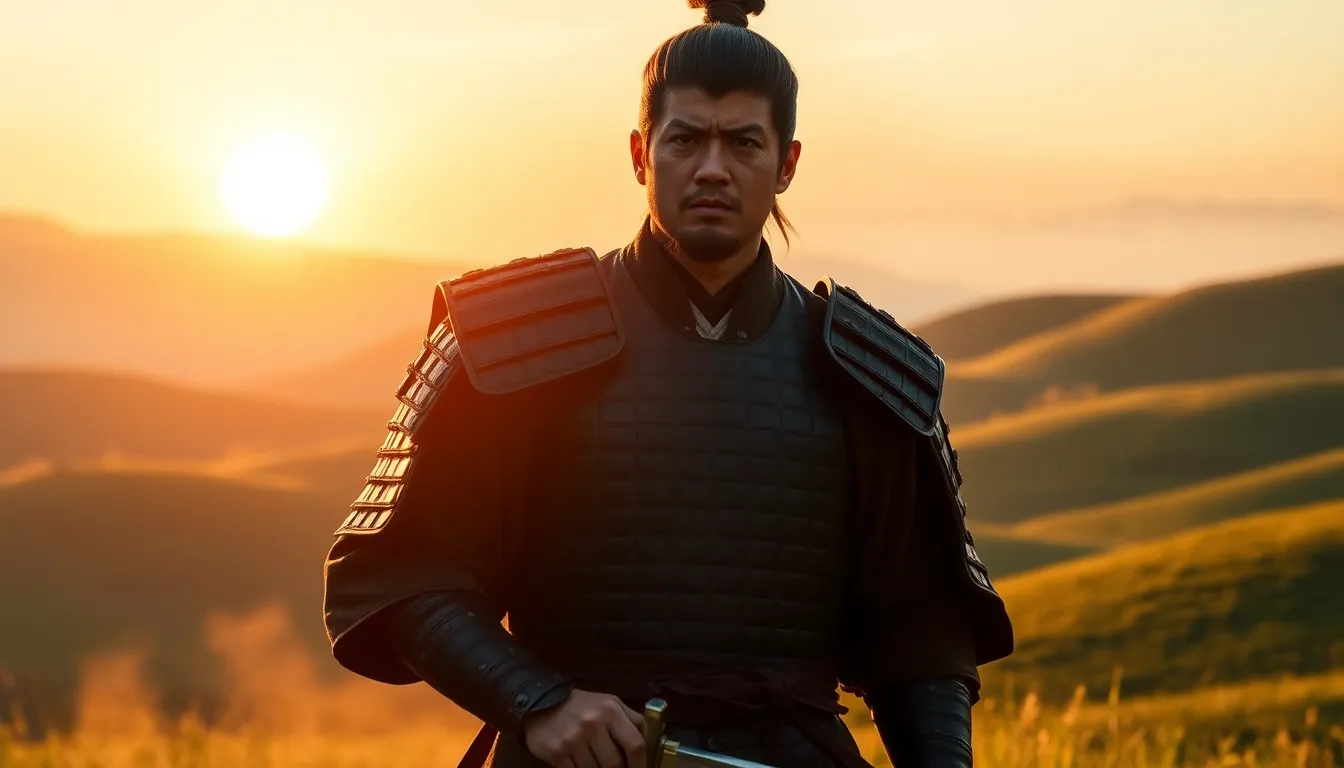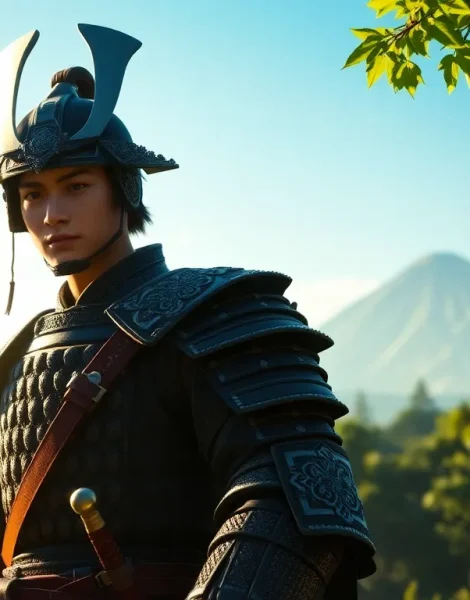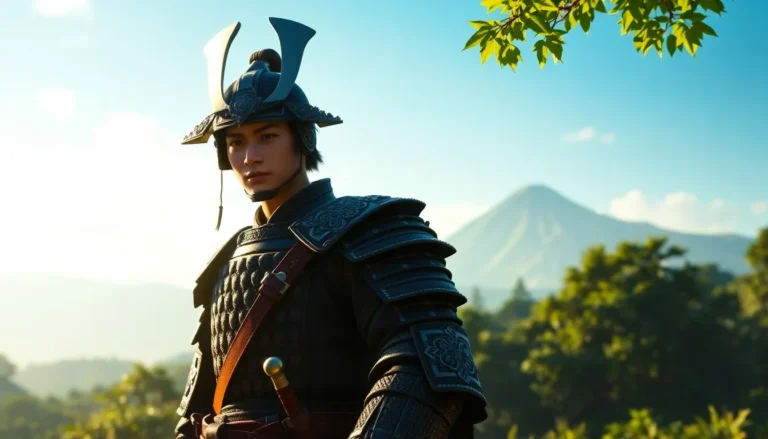In the vast landscape of video games, few titles leave as lasting an impression as Ghost of Tsushima. At the heart of this masterpiece is Jin Sakai, a character whose journey is as compelling as the stunning visuals surrounding him. As players traverse the beautiful yet treacherous islands of Tsushima, Jin grapples with concepts of honor, loyalty, and survival. So, grab your favorite cup of tea, and let’s investigate deep into the intricate world of Jin Sakai, after all, who wouldn’t want to explore the life of a samurai living on the edge of tradition and transformation?
Table of Contents
ToggleThe Character of Jin Sakai

Jin Sakai stands out as a compelling protagonist in the realm of gaming. He embodies the qualities of a traditional samurai, courage, discipline, and a sense of justice, but he is also deeply human. Throughout the game, players witness Jin evolve from a dutiful samurai into a warrior willing to embrace the shadows. His character can be described as torn: steeped in the values of his ancestors yet faced with the dire necessity to adapt.
Initially, Jin showcases strong ties to his samurai heritage. Raised by a noble lineage, he keeps honor close to his heart. Yet, as the Mongol invasion wreaks havoc on Tsushima, the ideals he holds dear are put to the test. This transformation is driven not just by the need to save his homeland, but also by the relationships he forges along the way. Jin’s complexity vividly portrays what it means to be torn between duty and desperation.
Jin’s Role As The Last Samurai
As the last surviving samurai of his clan, Jin carries the weight of history on his shoulders. This role isn’t merely a title: it’s a burden. The expectations associated with being the last descendant resonate deeply throughout his journey. Players often find themselves questioning what it means to be a protector. For Jin, embodying the essence of a samurai means preserving the honor of his family, even as he battles his internal conflicts.
The game effectively highlights Jin’s struggles as he navigates the treacherous waters of warfare. Once proud of his samurai status, he soon realizes that the rigid traditions may not serve him well in combat against ruthless foes. The contrasts made between his traditional training and the guerrilla tactics he learns form the crux of the narrative. As he breaks away from his past, Jin starts to redefine what being a samurai truly means in a world where honor is continuously tested.
The Conflict Between Tradition And Survival
The heart of Jin’s journey lies in the perpetual struggle between tradition and survival. Each encounter with the Mongols pushes him further from the samurai code he so diligently followed. This conflict is not just physical but deeply philosophical. Jin often grapples with his identity, should he adhere to the rules that govern his life, or should he adapt to become a more effective warrior?
This inner turmoil reaches its pinnacle during pivotal moments in the game, where Jin must make heartbreaking choices. Do he remain loyal to the samurai way, or does he adopt the methods of the ghost? The game forces players to consider their own values and beliefs about honor and sacrifice. It’s not easy to watch Jin struggle, but this conflict shapes him into a more relatable and three-dimensional character.
Key Relationships And Their Impact
Relationships play a vital role in Jin’s progression. From his bond with Yuna, a skilled thief who helps Jin reassess his worldview, to his strained relationship with his uncle, who embodies traditional samurai values, every interaction adds depth to Jin’s character.
Yuna serves not only as an ally but also as a catalyst for change. She represents a divergence from the samurai code, pushing Jin to think critically about his way of life. Their dynamic is often fraught with tension but eventually reinforces the notion that change can come from unexpected places.
In contrast, Jin’s relationship with his uncle, Lord Shimura, embodies the pull of loyalty to tradition. Their conflicting ideologies create both external and internal struggles that propel the narrative forward. These relationships compel Jin to confront his beliefs and adjust his mindset, highlighting the importance of personal connection in shaping identity and values.
The Evolution Of Jin’s Morality
Jin’s journey is not simply about becoming a warrior: it’s about evolving morally. As he transitions away from the samurai’s rigid code, he encounters a myriad of ethical dilemmas. Each decision weighs heavily on him, and players feel that weight throughout the game.
The change begins subtly, with Jin justifying actions that would once be considered dishonorable. It escalates as major events occur, forcing him to reevaluate his choices. Players witness this evolution vividly, which not only engages them emotionally but prompts introspection on their personal moral compasses.
The forces driving Jin toward a more pragmatic approach highlight the blurred lines between right and wrong. This moral complexity enriches the narrative, challenging players to reconsider the idea of honor in a world where survival frequently takes precedence.
Gameplay Mechanics That Enhance Jin’s Story
The gameplay mechanics of Ghost of Tsushima beautifully intertwine with Jin’s narrative. As players step into Jin’s shoes, they engage not just in combat but also in a thoughtful exploration of his transformation. One standout feature is the combat system, which allows players to seamlessly shift from samurai fighting styles to ghost tactics. This shift mirrors Jin’s internal struggle and growing complexity.
The open-world design encourages exploration, enabling players to uncover tales of honor and betrayal. As players traverse Tsushima’s breathtaking landscapes, they discover hidden quests that reflect the themes of the game, honor, sacrifice, and the weight of choices.
Also, the choice-driven narrative fosters a sense of agency, making players feel directly connected to Jin’s journey. The combat encounters force players to consider not just skill but strategy, prompting them to reflect on the moral implications of their choices. This level of interactivity enhances Jin’s character arc, making the experience feel not only immersive but resonant.









